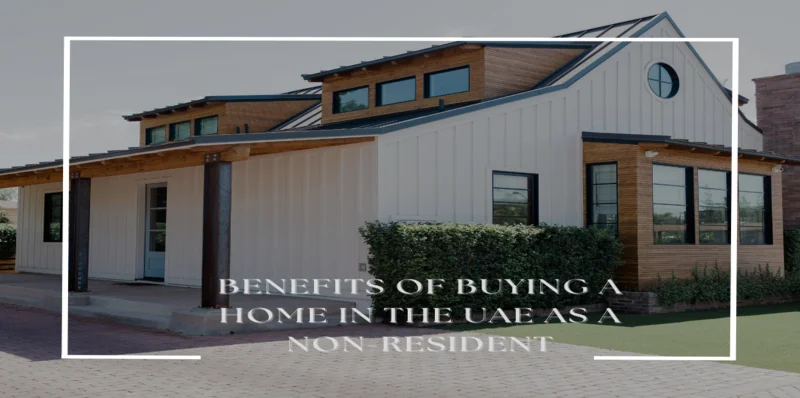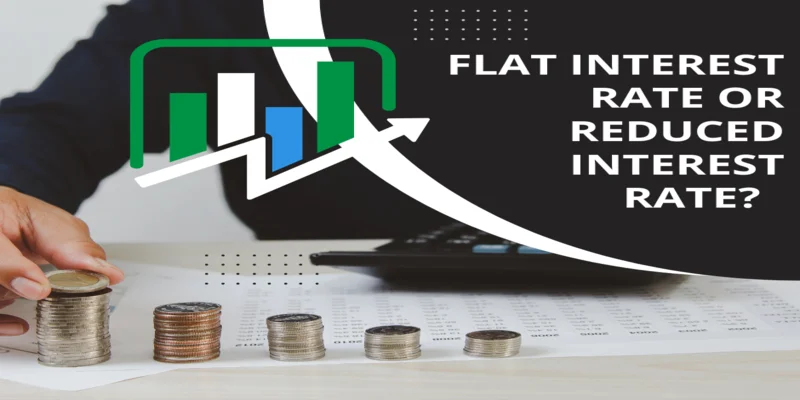The United Arab Emirates is one of the most rewarding investment destinations globally. It offers attractive investment opportunities and a renewable residence visa that attracts many non-residents to come to the UAE for employment and business. This article primarily focuses on helping UAE non-residents and expats in Dubai to opt for a home loan without any hassle.
Read on to gain in-depth knowledge about buying property in the UAE and know about the eligibility criteria, and documents required for home loans application and mortgage loans if you are a non-resident.
UAE: An Overview
The UAE, a global business hub, is a favorite destination for many leading business organizations. Here are some of the facts that you need to know about the UAE:
- It is a chief trading and financial center that conducts global business meetings and retail summits.
- This country has excellent infrastructure facilities combined with professional expertise and tailor-made services.
- Its strategic location, strong financial background, and healthy international relations are strong points to invest in its infrastructure.
- There are more than 40 free zones where 100% foreign ownership is permitted in as many as 122 economic activities in 13 sectors.
- The UAE’s strong financial points include low inflation, strong banking system, no foreign exchange controls, low custom traffics and fully convertible currency.
- The country provides state-of-the-art industrial and commercial areas.
- Its new 10-year visa system welcomes qualified workers in the health, scientific, technological, and cultural sectors.
Non-Residents in the UAE
The UAE is an attractive place for expats to live and conduct business. The population of the UAE was 10.24 million as of 2024, in this, the total expat population is 9.06 million (88%).
Can a Non-Resident Apply for a Home Loan in the UAE?
Are you residing in a country apart from the UAE and planning to buy your dream home for a vacation or investment purpose in the United Arab of Emirates? If you want to know whether you can apply for a home loan being a foreign investor, the answer is an absolute yes. Overseas investors can easily get a home loan to buy a home in the UAE. You can enjoy multiple benefits as an investor with a highly flexible home loan.
One important thing you must know is that non-residents in the UAE are not entitled to as many benefits as UAE citizens and expats. However, UAE non-resident investors do not face any trouble if they meet the eligibility criteria for home loans and submit the complete set of documents.
Before understanding more about applying for a home loan as a non-resident, there are certain factors to consider while buying a property in the UAE. Want to know them? Let’s dive in!
What Non-residents Must Consider Before Buying Property in the UAE
Here are a few facts you must be aware of before buying property in the UAE:
- The UAE does not have a single real estate regulation. Each emirate has its own legislation.
- Non-residents can buy property in certain zones, including most of new Dubai.
- The rights to real estate in Dubai are registered in a special registry by the Land Department in Dubai. Owners are issued a corresponding certificate of registration called the Title Deed.
Registration fees account for 2% of the property value (both for the buyer and the seller). The commission is 5% of the value of the property.
Steps to be Followed Before Buying a Property in the UAE
Here are some steps that you must follow before buying a property in the UAE:
1. Selection of the property
The company that has been assigned the job of buying property for the non-resident researches the market and makes a list of properties according to the prospective buyer’s preferences. The preferences may include types of property desired and other terms and conditions.
2. Arranging the client’s visit
The next step is arranging the prospective buyer’s visit to the shortlisted properties. A meeting on arrival and making an itinerary for visiting various properties will be part of the agenda.
3. Signing of the sale and purchase agreements
After selecting a property, the real estate sales agreement is signed. The real estate firm employees help the client sign the agreement with the required legal assistance.
4. Payment of deposit
The client has to deposit 10% of the total property value.
5. Getting the developer’s permission
The property seller must now avail permission from the real estate developer to sell the property. After receiving permission, the registration of the property is done at the Land Department of Dubai. This process for permission can take a minimum of a day and a maximum of 2–3 weeks. The cost of such registration can vary from 500 to 5000 AED.
6. Registration of the property and full-price payment
The new owner’s name is entered into the Land Department after the permission for sale is received.
The buyer now has to make the full payment to the seller. After the payment, the buyer is issued a registration certificate or the Title Deed, which shows him as the owner of the property.
7. Documents required for registration
A document provided by the buyer and seller stating that the entire transaction has been completed and that they have no claims against each other.
Benefits of Buying a Home in the UAE as a Non-resident

Here are certain benefits that non-residents can enjoy if they buy their dream home in the UAE, one of the fastest-growing economies:
1. Competitive real estate prices
Getting a property at a competitive price is one of the most lucrative opportunities a real estate investor can look for. The magnificent economy of the UAE offers this not only to UAE citizens but also to overseas investors.
Dubai has a high potential to grow an investor’s money swiftly. Therefore, as an investor, you can opt for a luxurious yet affordable home here and witness the amplification of the funds you have invested in.
2. High rental yield for properties
UAE properties are known for yielding a high return on investment. For instance, an investor can reap up to 6% of ROI from villas, and flats/apartments help real estate investors fetch between 7–7.5% ROI annually.
3. Residence visa
Besides boosting their invested money within no time, the best part of buying a property in the UAE is that it helps foreign nationals obtain a residence visa.
4. Friendly taxation laws
The investor-friendly tax system has encouraged numerous individuals to buy a home in the UAE. Even non-residents are not charged any taxes on purchased property or the rental income earned from their homes or other real estate assets.
5. Effective property management
It is effortless to manage your property and handle the legalities if you have purchased a real estate asset, home, or villa in the UAE. The primary reason behind this is that the UAE is a developed and highly organized country that provides special services to foreign investors by offering compelling property management services.
Eligibility Criteria for Home Loans for Non-residents in the UAE
Non-residents can buy property in the UAE, including holiday homes, and avail of mortgage loans. Below-mentioned are the conditions that non-residents must adhere to, in order to apply for a mortgage loan or home loan in the UAE:
- The person must be a citizen of a country on the bank’s list before applying for a non-resident home loan.
- The person must be either salaried or self-employed to apply for the loan.
- Some banks have minimum age restrictions for home loan applications. Abu Dhabi Commercial Bank (ADCB) requires non-residents to have a minimum age of 25 years to apply for a non-resident loan.
- There are minimum post-tax income requirements to be eligible for a housing loan. ADCB requires loan applicants to have a minimum post-tax income of 25,000 AED.
- Banks have a list of approved property developers and projects. The person applying for a loan must check whether the property bought is on the bank list.
Documents Required for Non-residents to Apply for a Home Loan in the UAE
- Valid passport (as proof of identity)
- Bank statements for the past 3–6 months (as proof of income)
- All documents to prove creditworthiness, such as copies of income tax returns (if applicable)
- Trade license, audited balance sheet, and profit and loss statements (for self-employed individuals)
- Salary certificates or pay slips (for employed people)
- Details of all existing loans
Step-by-step Process to Apply for a Home Loan in the UAE for Non-residents and Foreign Investors
Listed below are the essential steps that non-residents must follow to buy a home in the UAE and process the mortgage against it:
- The first thing you need to do is choose and decide the source you want to apply for the home loan from – either a bank or a broker.
- The next step is to select the source of loan that meets all your financial requirements. It is always advisable to get expert advice from a highly qualified broker. You can also hire a local lawyer who aids in the transaction process.
- Make a set of all paperwork, and submit the file to the bank or broker to get finance pre-approval.
- Find the right property that fits your budget.
- Always ensure the purchase price is fixed so that the seller is not entitled to make any modifications/alterations to the sale consideration at any later point.
- Agree on a completion date, and book your property by paying a token amount to the seller.
- Provide the necessary documentation to complete the process, which will help complete the home loan approval process.
Features of Home Loans in the UAE for Non-residents
Some of the salient features of home loans for non-residents in the UAE are listed below-
1. Maximum loan amount
The loan amount that the bank offers will depend on the applicant’s financial position. The maximum loan amount offered also differs from bank to bank. For example, Mashreq Finance gives loans up to a limit of 10 million, while the maximum amount funded by ADCB IS 24 million.
2. Loan-to-Value (LTV) ratio
The LTV ratio in a home loan is the percentage of the property value that a bank can loan to the buyer of a property. Banks are not permitted to finance 100% of a property value as a loan. According to the laws in the UAE, non-resident borrowers have to invest a minimum of 20%. This limit is for properties with a valuation of AED 5 million.
For properties with a value higher than AED 5 million, non-residents have to make a down payment of at least 30% of the property’s value. However, some banks have restrictions on financing non-residents to a maximum of 50% of the property limit.
3. Interest rates
There are two types of non-resident home loan available: flat interest rates and reduced interest rates.
- Flat interest rates
The interest rates are fixed at the beginning of the term loan and remain the same throughout the loan tenure. The rate is applied to the principal amount. For example, on borrowing AED 10,00,000 with interest rates of 5%, the interest amount would be AED 50,000 throughout the loan term.
- Reduced interest rates
In the case of reduced interest rates, the principal amount is reduced with every payment, and correspondingly, the interest amount also reduces. For example, on borrowing AED 20,00,000 with an interest rate of 6%, the interest amount would be AED 1,20,000 in the first year. In the second year, if the principal amount paid in the first year is AED 50,000, the interest amount for the second year will be AED 1,17,000 (6% on AED 19,50,000).
Thus, the interest amount will keep reducing every year.
A borrower should prefer flat interest rates if the flat interest rates are very low. On the other hand, if interest rates are currently high, the reduced interest rate option should be opted for as interest rates are expected to fall from the current high levels.

Types of Home Loans for Non-residents in the UAE
Being a UAE non-resident, you must decide if you want a fixed/variable rate mortgage loan in UAE or a home loan in UAE for the real estate asset you want to buy. The fixed-rate loan will charge you the same interest rate throughout your loan tenure. However, the variable-rate loan can cost you less or more depending on market fluctuations and situational interest rates.
Where Can You Get Home Loans in the UAE?
Foreign investors can get a home loan through a bank or a broker. If you think that you will not be able to meet the eligibility criteria or do not possess a certain set of documents, it is always a good idea to take expert advice from a proficient and experienced broker.
Average Salary of UAE Non-residents
The average salary for UAE non-residents in 2021 was estimated to be 21,500 AED per month, according to the exchange rates in June 2022, that comes down to 5854 USD per month. However, the average salary in the UAE is not exceptional since it is lower than other developed countries such as the USA, with an average salary of 29,017 AED (or 7900 USD) per month, or the UK, which has an average salary of 29,873 AED (or 8133 USD). If we talk about the average salary range in UAE, it extends from a monthly salary of 4810 AED to 99,100 AED.
UAE is a flourishing country. Therefore, many businesses seeking to expand and grow exponentially are making the right move to outsource manpower to Dubai and Abu Dhabi. The minimum wage in the UAE is still legally blinding as the UAE Federal Labour Law has not introduced any provisions for minimum wage.
Conclusion
The UAE is one of the best destinations in the world for real estate investment. The liberalized rules in the UAE have allowed non-residents to enjoy a luxurious life in the UAE. They can buy property in selected cities of the UAE like Abu Dhabi, Dubai, and Sharjah to earn a good return on investment.
FAQs on Home Loans for Non-Residents in the UAE
1. Is it compulsory for a non-resident to get pre-approval for a mortgage/home loan?
Although pre-approval for home loans for non-residents in the UAE is not compulsory, obtaining the same will ensure that the required home/mortgage loan in the UAE will be provided by the bank or other financial institution.
2. As the mortgage/loan is such a huge financial commitment, how does a person know whether it is the right decision?
The decision to take a mortgage loan for purchasing a property depends on the following factors:
- The individual’s financial position
- The life stage of the person
- Present loans/liabilities
- Financial goals
3. What are the factors to be considered before applying for a home/mortgage loan?
These are some of the factors that one should consider before applying for a loan-
- The maximum loan amount
- Debt Burden Ratio
- Equated Monthly Installment
- Loan Tenure
- Choice of interest rate structure
4. Can a person repay his home loan faster?
A person can undoubtedly repay his home loan before the stipulated time, but he may have to bear early settlement or pre-closure fees.
5. Can a home/mortgage borrower in the UAE take insurance cover on a loan in the case of sickness, accident, or job loss?
A person can use an insurance policy to cover his loan payments if he loses his job, suffers an accident, or falls ill. However, this policy must be taken separately and is not provided by the bank that has granted the loan.



